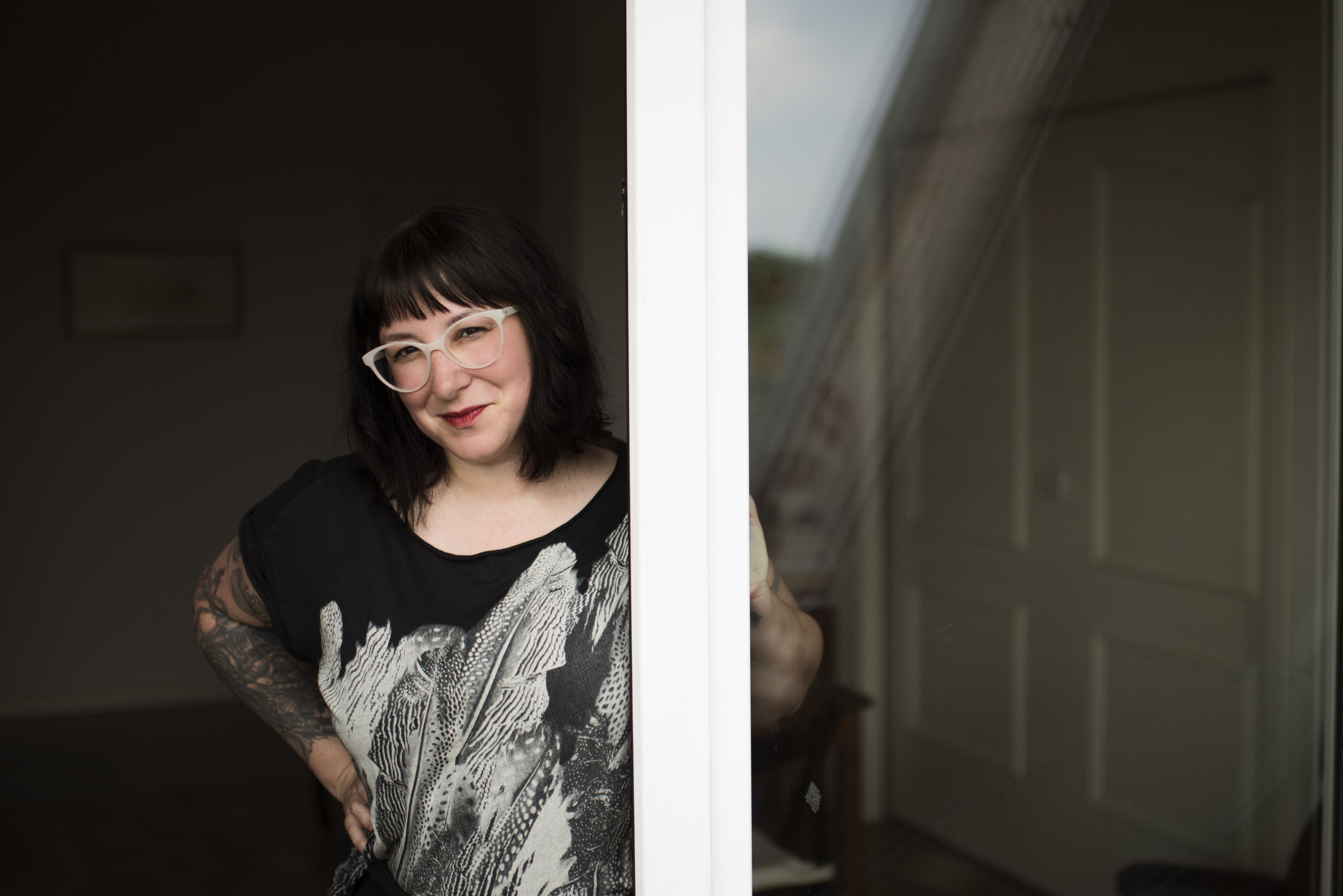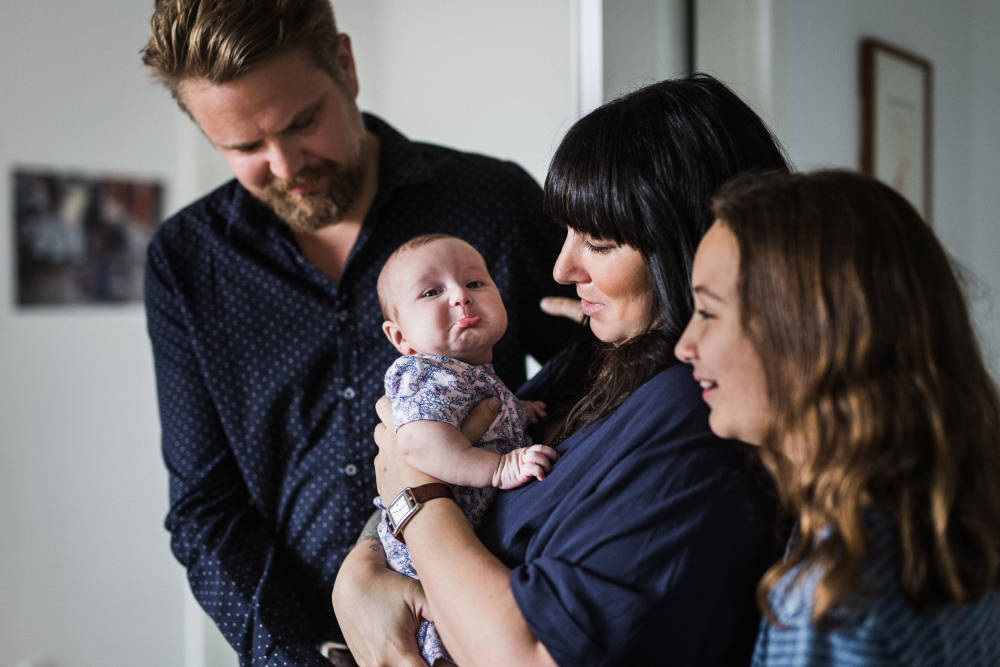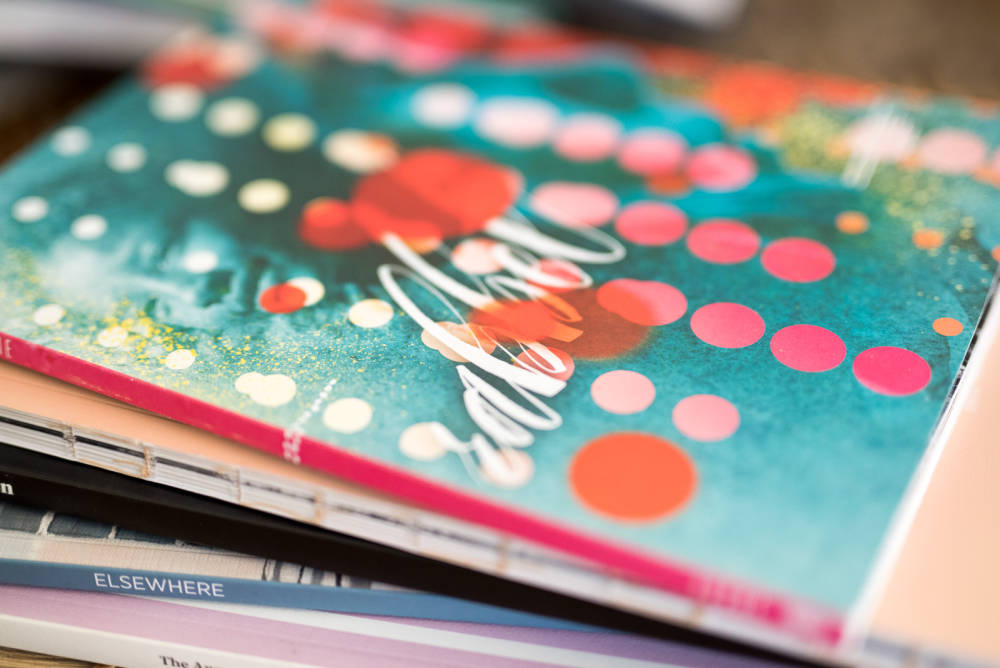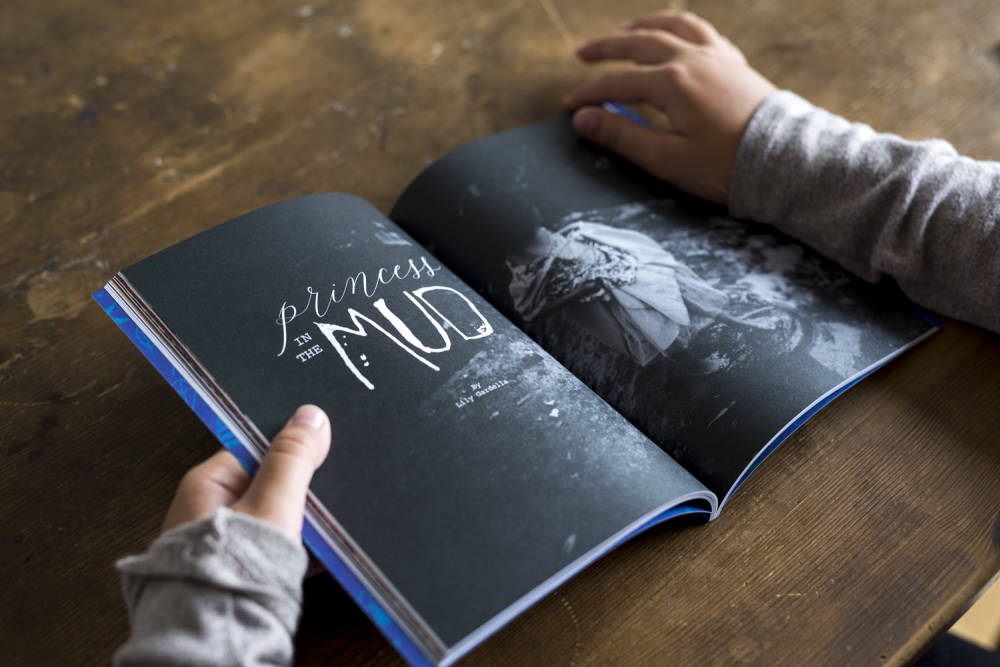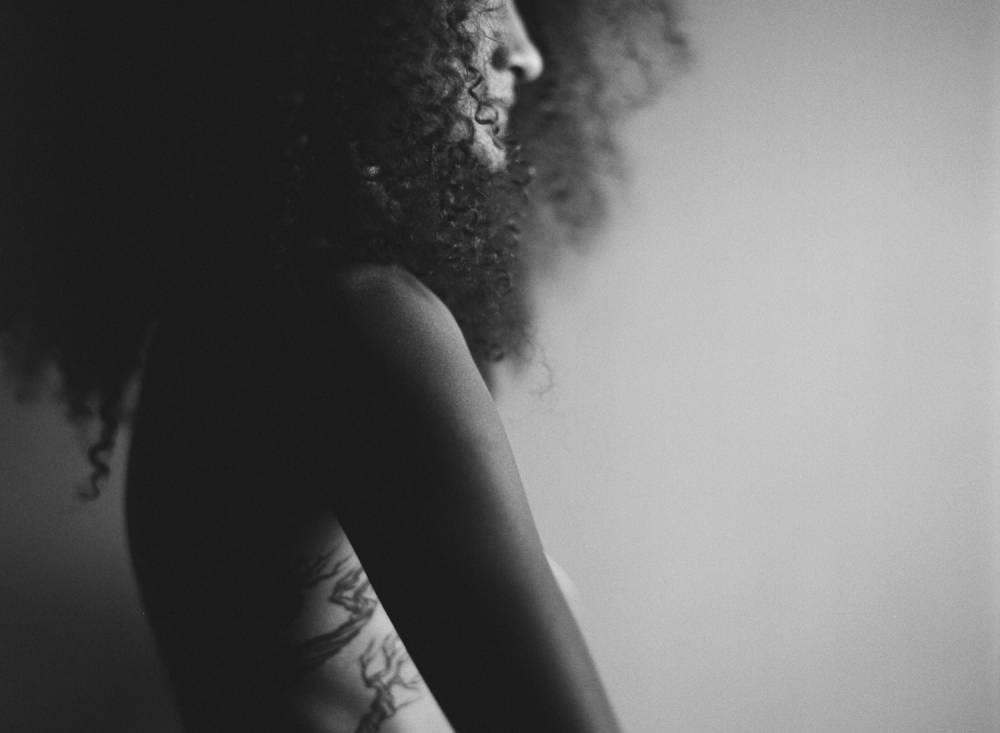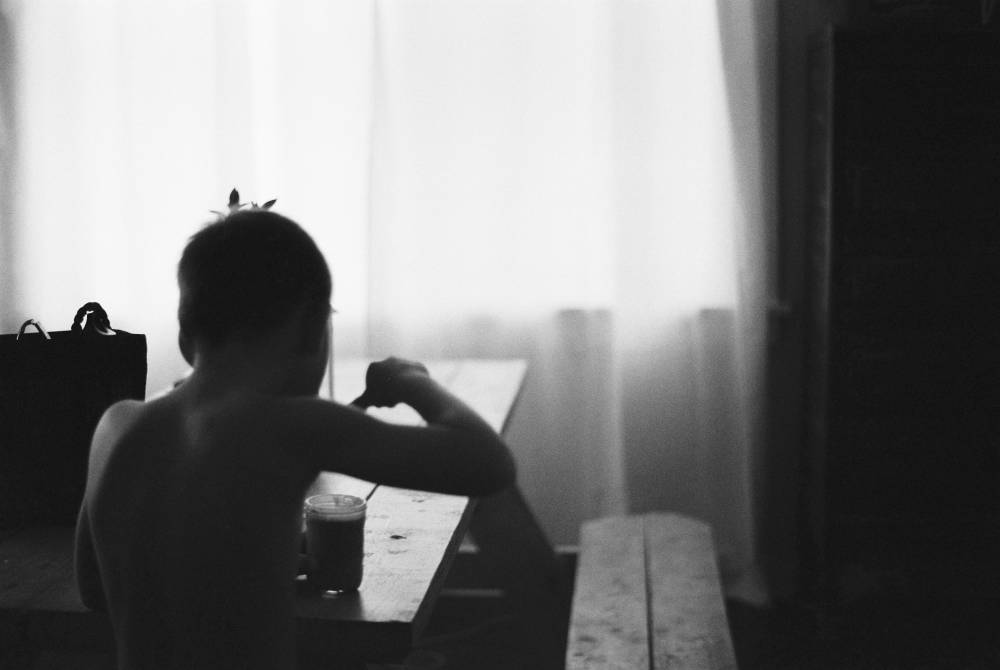How long have you been in Berlin? About four years.
And where were you before that? Kind of all over. I grew up in New Jersey, and I kind of bounced around the US through most of my twenties. Then I lived in Costa Rica for awhile, moved back to the states for a bit, and then here.
Wow. What made you do all of that moving? That’s a good question. I have always been looking for the next experience, the next thing. I’ve always been looking for something, not quite knowing what it was, and moving around gave me the opportunity to reinvent myself and reinvent my life. It’s just always appealed to me to be in new places and have new experiences.
My husband and I often dream about just picking up and moving somewhere but it’s really hard—with kids anyway—to just pull the trigger and go. It’s always really comforting to see somebody else who just makes it happen and does it. When we decided to move to Costa Rica, I was married at the time. My daughter was about a year old, and we were about to do the whole settling down thing. I had this middle-of-the-night panic and was like, oh my God. I don’t think this is really what I want. So we decided that if there was ever an opportunity to do something crazy and move to another country, that was the moment, before she was in school. We weren’t really that far into our careers at that point, and I just felt like it was the most free we’d ever probably be. So we picked up and moved to Costa Rica.
How long were you there before it was time to start thinking about school for your daughter? Actually, we were there about six years, and my daughter did start school there. At the time when we first moved there I kind of thought we would be there forever, or at least for quite a big chunk of time. We had a great community of people there, and I actually really loved her school. It was an old house, and they were barefoot in the dirt all day and speaking Spanish. It was really cool. It was kind of this fantasy that I always had for her growing up, this kind of wild, feral childhood. Then my career actually really took off when we were living in Costa Rica, but then my husband and I divorced. After awhile I just felt like I was ready for the next thing at that point. It seemed like a turning point in my life, and I didn’t necessarily want to come back to the States, but I was kind of called back there. I was just ready for the next thing..
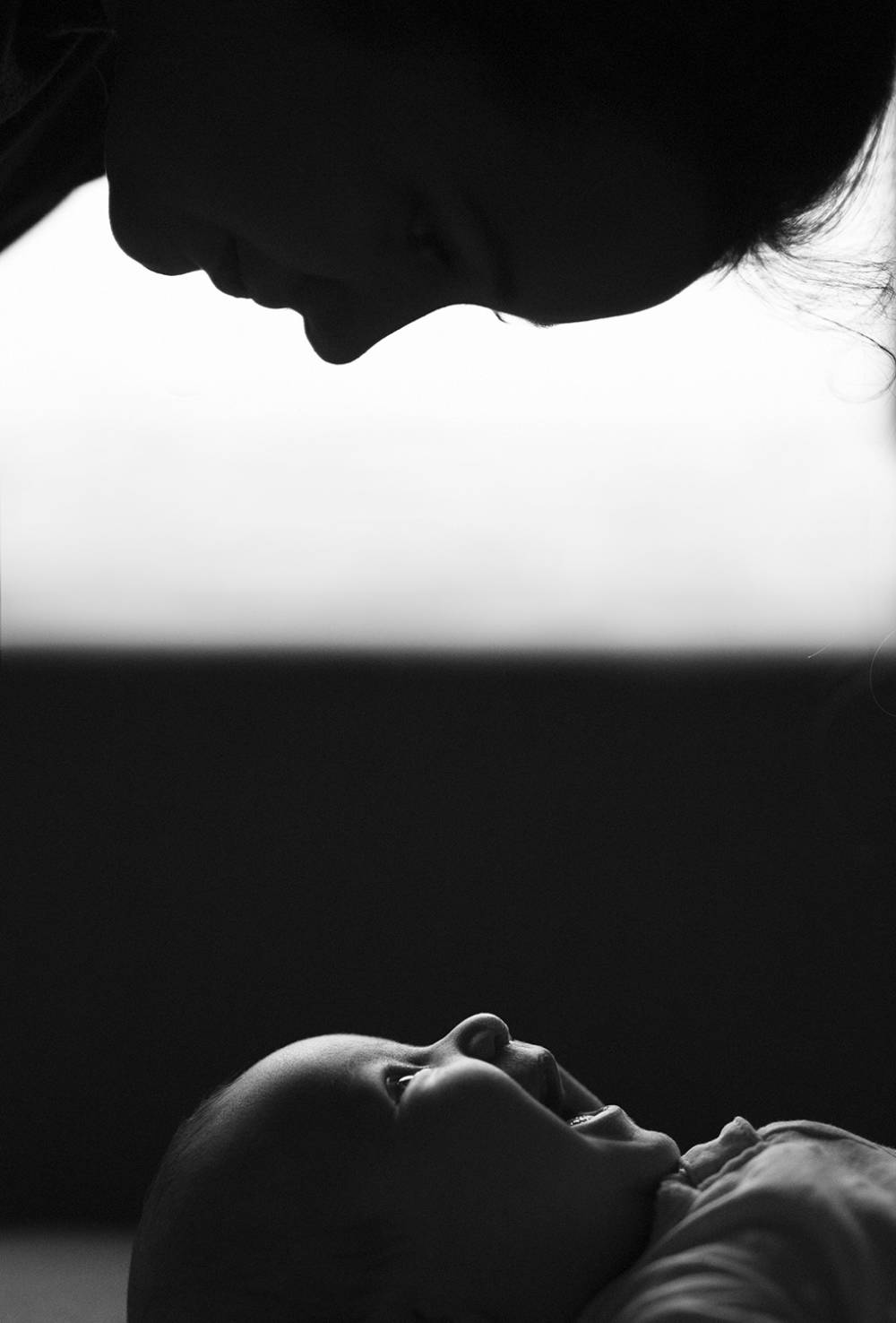
What is your artistic background? I guess in the same way that I’ve always moved places, I’ve moved through a lot of mediums. I actually went to art school for glass blowing. Then when I was at art school in California I took some photography and design classes. That seemed to be a little more practical than glass blowing, so I switched to that.
Then when I was trying to finish up my degree I had to take an English class to fulfill some requirement, and I took a creative writing class at San Jose State. I wasn’t going to a state school, I was going to art school, but classes were cheaper at the state school so I took some of the non-art classes there. My writing professor told me I should be a writer, and I would be wasting my life if I did anything else. So I dropped out of art school. Actually, he was the head of the Writing Department so he admitted me to the Master’s Program for Creative Writing. Then I just kind of skipped getting my Bachelor’s degree and went straight to my Master’s in Creative Writing. But I’ve mostly made my living from photography, and a little bit of design.
I like that. I’m that way too. I can never pick one thing, but I wouldn’t have it any other way. How did you get the idea to start the magazine? For awhile, in Costa Rica and after I moved back to the States, I was making my living primarily as a wedding photographer. That was great. It was great business. I loved it. I loved traveling all over the world and shooting weddings. It was kind of a dream job. But the industry completely changed in the ten years from when I started to when I moved to Berlin, and I just didn’t feel like I had it in me to start over again. I had already started that business twice: once in Costa Rica, once when I moved back to the States. I just didn’t feel like I could reinvent my business here in Europe and compete. The prices were lower here and I would have been taking a paycut, and it just wasn’t my thing anymore.
“I was having this nostalgia for teen magazines from when I was a teenager and I started thinking about how cool it would be to make a modern version of Sassy Magazine.”
So I spent maybe a year looking for my next project and it just sort of came to me: I was having this nostalgia for teen magazines from when I was a teenager and I started thinking about how cool it would be to make a modern version of Sassy Magazine. Then I realized I don’t know anything about teenagers nowadays. I feel like being a teenager now is completely different than it was in the early nineties when I was a teenager. I just didn’t feel like I had anything to say to teenagers necessarily, but I started thinking about my daughter and her having that experience of reading magazines like I had had. So I almost thought about creating a teen magazine but for younger girls, my daughter’s age. She was around nine at the time. That was the vision I had: this cool magazine that was full of the interesting but relatable stories of really cool girls and women from around the world that were just doing cool things. But I really pulled from my feeling of nostalgia of reading magazines when I was younger.
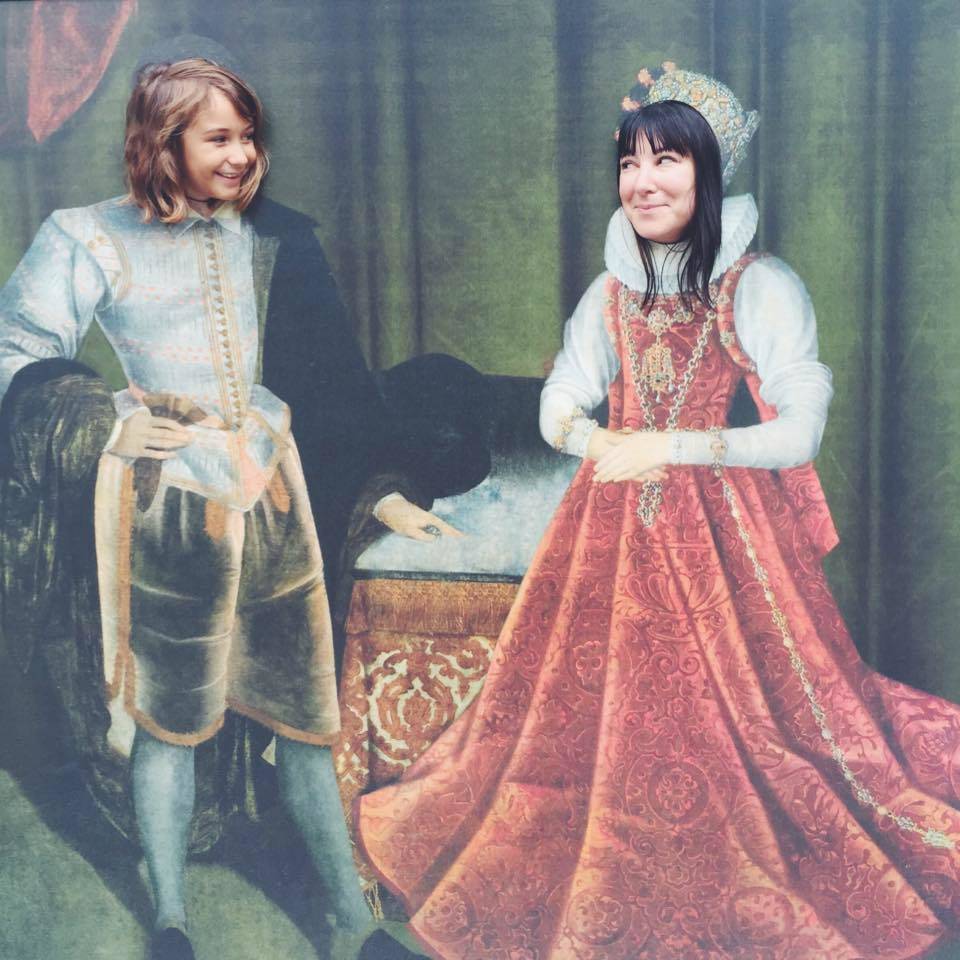
How old is your daughter now, and how much input does she give you into what goes into the magazine? She’s twelve. Quite a bit. I try to make it a collaborative process with her. I also have a partner now, so obviously we manage the creative side of the magazine, but she really does give us feedback on a lot of ideas. She’s kind of the test market. I think it’s great for her. And her friends too. They like to participate and give their ideas, and of course I use them for photos and those kinds of things as well.
What goes into making a magazine? I know nothing about it, but it seems like there would be a ton of skill that you would have to know to make a print magazine. How did you learn all of that? I have a background in both graphic design and photography, so I was at least able to bring those skills to the table, and writing. But I did have to completely teach myself the independent publishing industry. At first it was me doing it by myself, so I’m not only coming up with the content, doing interviews, doing all of the design, sourcing imagery, laying it out in Adobe InDesign, but I also was doing all of the business side of everything myself, the marketing and all of that.
I had made a business plan and I actually got some investment money to start it. I had this vision for how I was going to do everything, and then right after I got the initial investment, I got pregnant again. That definitely changed the timeline quite a bit. Now I have an almost one-year-old. I would’ve thought we would have six issues out by now, and we’ve done two! We’re about to launch the third issue next month, and we’re doing a Kickstarter to launch that issue. Definitely having another baby put a little bit of a wrench in the plans.
But that’s pretty good! Even with a one year old, you still got out two issues! Yeah!
Let’s talk a little bit about the difference in becoming a mother with your first and then becoming a mother with your second. What did you expect going into motherhood the first time? My career really hadn’t taken off yet and so in a way it was really easy, because I didn’t have to give anything up, in a sense. I had a part-time job working for a photographer and it didn’t feel like any kind of sacrifice of my time to bring a baby into the mix. I was in my twenties, so I had a lot of energy back then, and she was a really easy baby. I had a great pregnancy, and she was sleeping through the night at three months. I took for granted how lucky I was with that one. Then to do it again 11 years later…of course I was expecting it would be very similar, and I thought “Oh, I’ll be able to kind of still run my business and maybe I’ll get a little bit of help, but it shouldn’t be that big of a deal.” But this has been completely different in almost every way.
“It was really hard for me to let go of the expectation that I had: that it shouldn’t be this hard, to just kind of let go and accept that it is hard, and it’s okay.”
I’m older, so it’s a little bit more difficult to go through pregnancy, and the sleepless nights affect me more, but she’s also a completely different baby. She’s actually just started sleeping through the night, but I had a very difficult pregnancy. I had postpartum depression. I had just a really, really rough time. And she’s just a much more demanding baby. It has drained me so much more than the first time. It was really hard for me to let go of the expectation that I had, that it shouldn’t be this hard, to just kind of let go and accept that it is hard, and it’s okay. It’s okay to just focus on this right now and put my career aside for a little bit. That was really, really difficult for me to do. But it was kind of necessary. I just couldn’t manage it all.
And you’re still just a year from that, right? Yeah. She’ll be a year in three weeks.
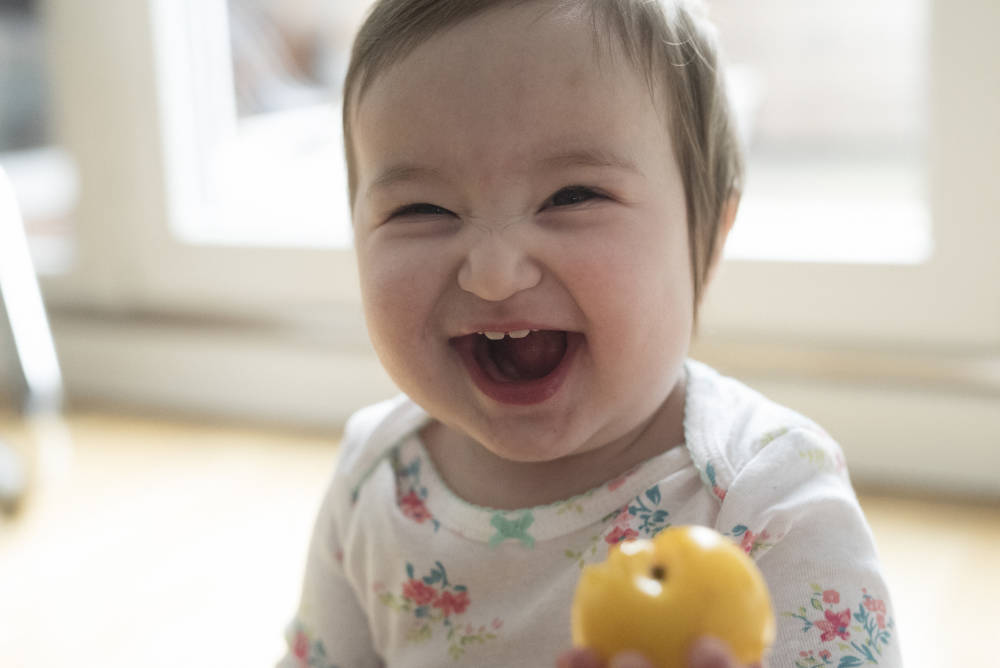
I think that’s part of the struggle I have too. That I think if I were much younger, when I became a mom for the first time and didn’t have a career trajectory, didn’t yet know what I wanted, that maybe it wouldn’t have interrupted my life in such a way. And the fact that I didn’t expect for that to happen either made it even harder. That’s interesting though that you can see the difference between your first and your second. What kinds of things have helped? I really wished that I had had more family nearby. Part of the nature of being an expat is that I sacrificed that, and that’s really something that I wish I had—more access to a close community that could help. I really needed it, and I didn’t have it. What ended up helping the most is just giving in and accepting that I’m not going to be able to do it all right now.
The timing with the first one was kind of perfect. My career really took off around the time she was two and a half, three, so she was in school during the day. I had more free time, and I was shooting weddings on the weekends when my husband was around, and eventually my business took off and he became a stay at home dad. The timing worked out really well for my career to really take off when she was already school-age. Versus this time, when I already have an active career that is really demanding. Then to add a newborn on top of that was, I mean, just really, really hard.
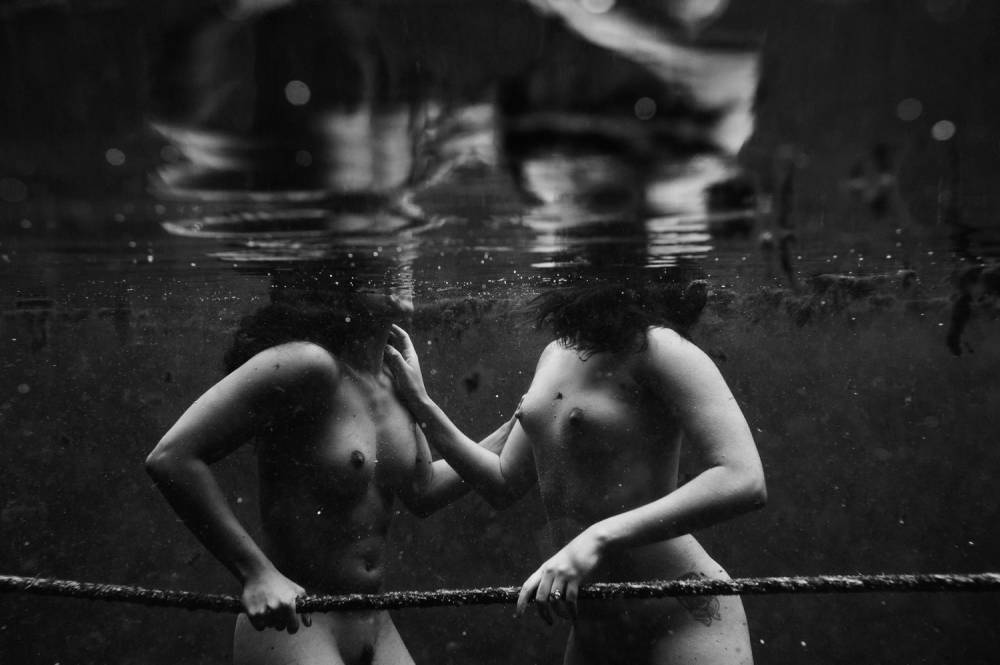
So being in Berlin, do you have access to childcare in a different way than you would if you were in the States? Yes. Starting from age one, we have basically free childcare until age three. So that’s great, and that’s something that I’m kind of looking forward to. It doesn’t exactly start exactly at one year. It usually starts at the end of the summer when the older kids go to school. That’s when the spaces open up. That’s sort of the light at the end of the tunnel right now. I’m going to get this free childcare. Of course, private childcare is always an option as well, but it’s just so expensive.
I got stuck in this catch 22 where I don’t have enough time to focus on my work, to make money to be able to pay for a babysitter, but I need a babysitter to have time to work. I couldn’t quite get out of that loop. I’m just now seeing the end of that. One other nice thing about living in Germany is we do have paid parental leave. As a freelancer it’s not the best money, but it definitely helped. We get what’s called Kindergeld, which is money for each child. It’s like 200 euros per child every month, and that really, really helps. These things are available to everybody living in Germany. So that’s been really great.
When have you carved out time to work in this last year? And what have been the challenges of that? Right now I basically work whenever I possibly can. If she’s playing quietly and independently, I’ll work. When she’s napping, I work. After she goes to bed at night, I work. On the weekends, I work. I probably get the most work done on the weekends because my partner’s here and he’ll take the baby and I will usually go to a cafe and work on my computer or something. But the challenge of course is that I have almost no real downtime, because I’m either being a stay at home mom, or I’m working, and it’s very hard to carve out time for relaxing.
And you’re burning the candle at both ends. For sure. Also I feel a little bit guilty that I’m neglecting my older daughter. It was just she and I for awhile. We moved here, the two of us, and so she was used to having a lot of my attention. We went from a family of two to a family of four, very quickly. She’s great. She’s handling it great, but I still of course have that maternal guilt. I wish that I could give her more right now
You’re doing the best that you can! How is the magazine going, and what does the future look like for it? It’s going really well right now! I definitely had to take a step back from it and that was really hard, because I had built up this fan base and then I felt like other people had expectations of me that I wasn’t living up to. That was really hard for me. I finally realized I couldn’t do it on my own, and so I hired a social media manager. She was just nailing it and I really enjoyed working with her, and so I asked her, “Why don’t you come on as my partner, and we can do this together?” And she was into it. So now we’re working on it together, which is great. That’s kind of given me the edge that I needed to really move forward.
Right now we’re working on a Kickstarter campaign for the third issue, and we are planning on adding some more online content. We want to do some video stories, kind of little short documentaries about women in the arts. And we also plan to introduce a creative grant program for preteen girls. Mini grants that would give them the resources and materials to pursue a project or an idea that they might have. I think it’s really important as a creative person at that kind of transitional year, where you’re kind of moving between childhood and the teen years. It’s just such a tenuous time for confidence. To have somebody in your corner that’s encouraging you and pushing you to keep going and pursuing these things. Not giving up because you don’t feel confident enough in your abilities or your creativity, those kinds of things. So we want to be able to provide not just content, but resources as well.
One line from your About page really stood out to me: “Whether she is living luxuriously in a big city, or wearing hand-me-downs in a remote fishing village; whether she has disabilities, illnesses, or limitations of any kind; whether she is big or small or short or tall, her story is stunning, and it matters, and it must be preserved and shared.”
I love that so much. It’s creating this culture of inclusivity, and celebrating the spirit inside the girl as she’s growing. Can you talk about where this came from? Is this something that you looked for as a kid? Or something you see in your daughter? I really struggled during my middle school and high school years. I was so insecure and lacking confidence, comparing myself to other people. I was still creative, but I became very private about it. I didn’t share my work with anyone. I remember coming across this box of things I had written and things I had made years later, and I was like, “Wow, I actually was really talented back then!” and no one ever got to see it because I was so fearful and I had so much self doubt in my abilities. I didn’t really feel a sense of community among my peers. I don’t want to say I wasn’t encouraged to be creative, because I definitely had creative friends and my parents definitely encouraged my creativity, but I was missing that validation that I needed to believe in myself.
I definitely started to see that in my daughter as well. She’s started to get that little voice of self doubt of “I’m not good enough at this” or “What will people think?” and she really started to become a perfectionist. I knew that that was something she inherited from me. I still struggle with perfectionism, but it’s something I can see now as not helpful to me at all, and that I’m working to overcome. So if I could prevent her from getting to this point, if I could almost intervene before it becomes a real problem, I feel that would be an enormous gift that I could give her and any girl that age. To intervene, and say “Don’t listen to the self doubt. Don’t feel that it has to be perfect, or you have to be perfect.” I was hoping to derail the way that those thoughts can really affect the direction that our lives take.
I’ve been talking about this idea of perfectionism with a friend of mine. She’s actually having a similar experience where she’s starting to see it in her kids, and getting worried about it. As adults, we know that perfectionism can lead to that self doubt in a really powerful and negative way. But as a kid, you think of perfectionism as a positive thing. “Oh, I’m going to be perfect! I’m going to be perfect at this. And everything I produce is going to look great for my teachers and my parents and…” I love this thought of let’s stop those ideas that perfectionism is always going to lead to something positive. Sometimes it’s about the process, and the journey of learning through the mistakes. As adults we have to support that in kids as they’re growing. Mistakes are an okay thing. But I’ve had to actually work on it in myself. Even in my thirties I still have to work on it, because I recognize that if she’s seeing me be a perfectionist, it’s going to send the wrong message. If I want her to develop this mindset of letting the mistakes lead the way, then I also have to do that. That’s been a challenge for me, but it’s been great. I definitely am now able to get things out there. Before, I would have obsessed about every little thing, and every little detail, and I probably still wouldn’t have launched the first issue because it wasn’t perfect. I’d still be tweaking things. But I had to just do it and I’m glad that I did.
Is the magazine available in the US? Or is it only in Europe? We ship worldwide, and the price is pretty much the same in the US and Europe. It can be purchased on the website.
Do you work from home or do you have a space you go to? Right now I work from home. I used to have a space before I got pregnant. I decided to kind of scale back on my expenses and everything, but I do really miss that community. I liked having a workplace to go to. It’s definitely a positive thing for me. Actually, today I just went and looked at a place. It’s coworking and childcare combined, so I’m considering that option. I love the idea of riding my bike there, dropping her off on one side, and going to my studio on the other. That would be kind of ideal.
What do you feel most proud of, in either the creation of the magazine, or in your career prior to the magazine? I’m definitely proud that I managed to launch the magazine. I do have to remind myself of how much work I have done. It’s easy to focus on the fact that I’m definitely not where I thought I would be at this point with the magazine. But I did it, and I got it out, and I’m really proud of what we’re doing with the magazine and the message of it. I’m proud of the way that it looks, and I feel like I’ve put a lot of my aesthetic into it, and my ideas. It has become a place where I can express all of these different skills that I’ve developed over the years. The photography and the design and the writing can kind of all come together in one place, and I feel really proud of that.
How does it feel for you to be creating that work in front of your daughter? Both on a personal level, because you’re pursuing what you want to be doing, but also because what you’re making is so meaningful to her as she’s growing? It means a lot to me. She’s been my muse in a sense, for the last several years. Definitely my photographic muse. I take a lot of pictures of her, and I think this has been a great opportunity for us to work together, and share ideas and connect, and I also think it provides her with an opportunity to express herself in a way where she has to take risks and know that people are going to see her work. I can imagine that when I was her age that I would have been terrified to think that—we didn’t really have the internet—but that all of these people would be seeing my work on the internet. But she’s kind of embraced the opportunity, and I think that’s such a cool thing that the people are going to see creative things that she’s made. Now she has taught herself hand lettering and so we’ve commissioned her to do some hand lettering for the magazine. I just think it’s cool. I’ve been able to give her this opportunity to share her work. It’s an important part of being an artist, actually getting to share your work with people.
“Let go of your expectations, and just give in to journey.”
What advice would you give to other Mother Makers? Let go of your expectations, and just give in to journey. People say this and it really doesn’t feel like it when you’re in the midst of it, but it really does go by quickly. There were times when I was looking at my life like “I just can’t do this.” But it really ultimately is temporary. The really challenging part of juggling motherhood and career is so temporary in the grand scheme of things. It feels like it’s not, but it is. The more I fought against it, the harder that it was. I ultimately gave in and was like, “This is what it’s going to be right now, but it’s okay, I can do it. It’s not forever.” Motherhood comes first, and I need to just kind of let go of feeling like I need to do it all.

